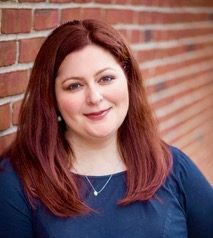Right now, our society is in the middle of an important discussion about how we deal with sexual harassment and assault, especially from our leaders and other public figures. With the grossly inappropriate conduct of media moguls, actors, comedians, celebrity chefs, professional athletes, news anchors, business executives, clergy, politicians, and other powerful men coming to a head, it forces us to reexamine who we consider to be our heroes, who we admire, and who we can trust. We must ask on an almost daily basis: are these powerful, influential people qualified to lead our industries, our congregations, and our nations, and can they ever be redeemed or forgiven for their monstrous transgressions?
In this week’s haftarah (I Kings 2:1-12) we read the final words of King David, whose long reign is nearing its end. From one angle, David was a great leader—he was charismatic, generous, and desired peace. He was a spiritual seeker and, of course, he was a poet and a maker of music. But we must remember that he was also a vengeful and lustful warrior whose conduct would most definitely have led to his firing, forced resignation, or impeachment (and perhaps prison) if he were in power today. Behavior like this from anyone, regardless of their position or office, is an example of some of the worst aspects of humanity.
Right now, in the cantorial world, conversations are being had about our musical tradition and the extensiveness of music written by known perpetrators of sexual abuse. For many, these melodies are so ingrained in our worship and celebrations that it is as if they are mi-Sinai (“from Sinai”). In some communities, to completely remove them from the liturgical repertoire would disrupt the ethos of the congregation and a sense of tradition that comes from a familiarity with the music of prayer. However, I have heard a number of cantors and shlichei tzibbur (service leaders) say that they no longer use any melodies attributed to known sexual abusers as a way of halting the veneration of those who hurt others.¹
Although the Book of Psalms’ attribution to King David is midrashic rather than historical, it is hard to completely separate the poetry from the poet, especially with how often tehillim (psalms) are included in our liturgical and para-liturical rites. Given what we know about David and his behaviors or supposed behaviors—such as his interaction with his young female attendant in the chapter immediately preceding this week’s haftarah (I Kings 1:4—the explicit mentioning of the king’s lack of intimacy with her seems like deflecting to me)—should we stop reciting psalms in our worship and remove them entirely from our canon?
As Rabbi Gunther Plaut z”l points out, “The heroes of the Tanach are not depicted as saints…they remain human and exhibit weaknesses that are often glaring”². For me, Rabbi Plaut’s statement is a reminder of our fallibility as human beings. In circumstances such as these, it makes me question power and how power can have such detrimental effects on behavior. It forces me to consider both the positive and negative aspects of human nature. It makes me consider how Judaism views teshuvah (repentance) and how I view forgiveness, especially when the transgressions were not done to me directly but still somehow effect me in an indirect way.
A cantorial colleague of mine recently reminded me of the Kabbalistic idea that “there is a spark of holiness in even the most degraded objects.”³ For some, the creators cannot be forgiven, but their creations can still be celebrated. For others, there is no room for forgiveness or redemption. I’m still trying to figure out how I feel. I don’t have an answer about what to do about reciting psalms written by a complicated king of antiquity, and singing melodies written in recent decades by sexual abusers is something I can only control when I am leading services in my own community. Right now, at this important moment in history, many individuals are feeling empowered to speak up and speak out. We must keep having discussions about who we venerate, about human nature, about behavior, and about obligation or exemption to forgive the transgressions of powerful, influential men.
Hazak hazak v’nit’hazek—may we go from strength to strength.
¹See “How to purge the music of Shlomo Carlebach in the age of #MeToo” by David A.M. Wilensky.
²The Haftarah Commentary, Rabbi W. Gunther Plaut, translation by Chaim Stern (New York: UAHC Press, 1996), p. 119.
³Joshua R. Jacobson, “Contrafaction,” Music Faculty Publications, Northeastern University Department of Music, Paper 1 (October 2010), p. 223.
Cantor Audrey Klein is the Congregational Engagement Director of Temple Emanu-El of Toronto. She received her cantorial ordination, as well as a Master’s degree in Jewish Education, from Hebrew College.

